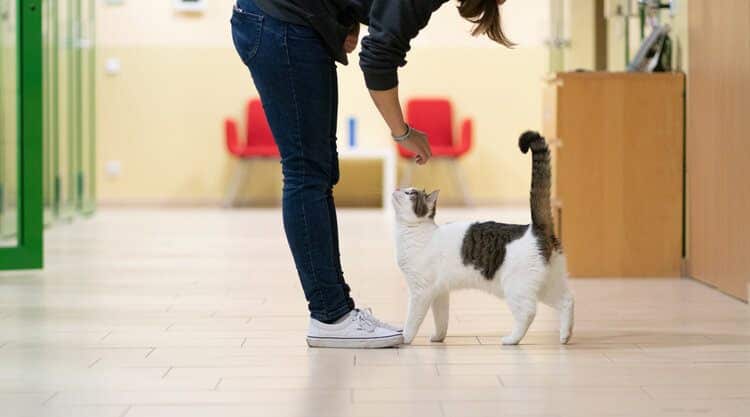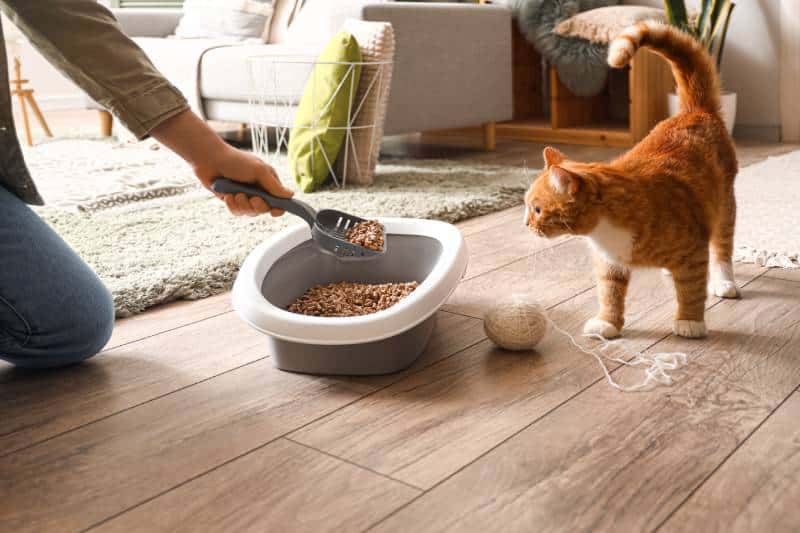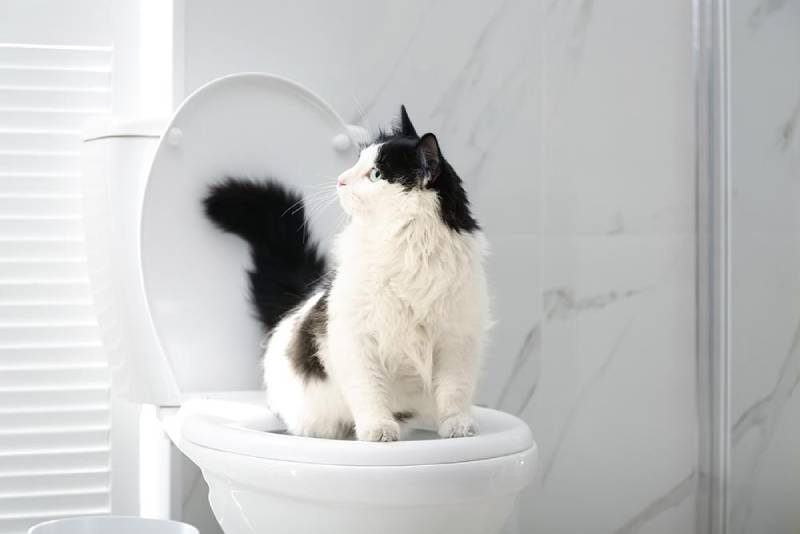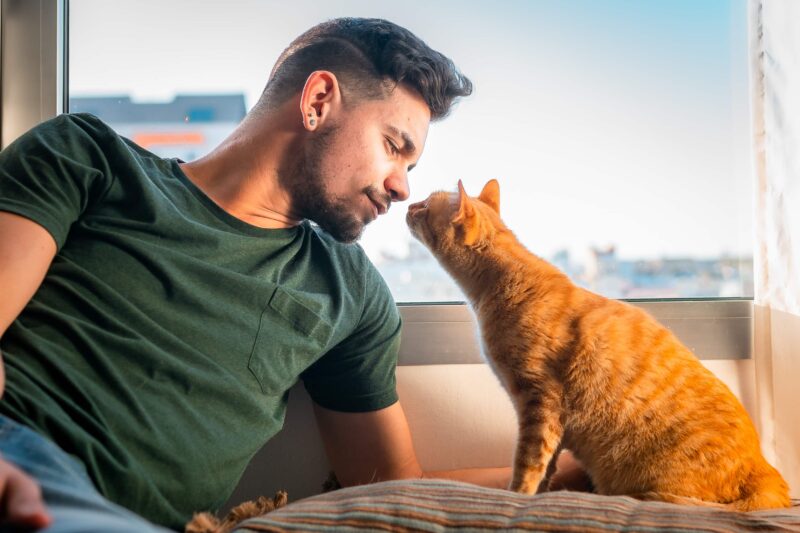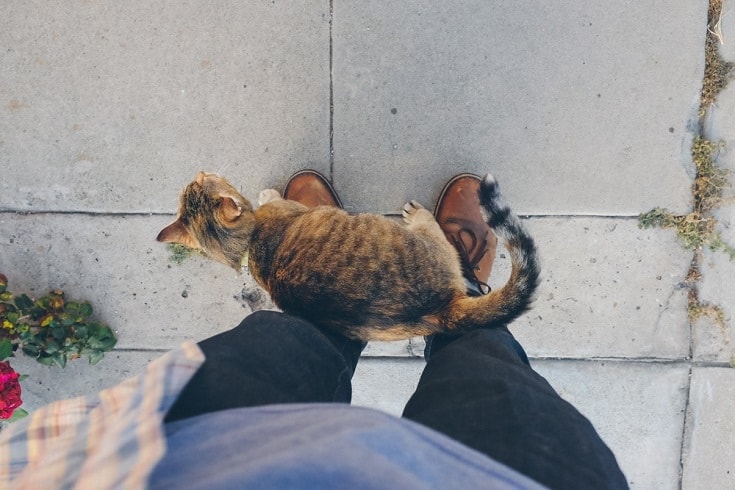Adopting a cat is a wonderful and rewarding way to welcome a new feline into your home. So many cats are waiting patiently in shelters to find their new forever homes. Whether you’re looking for a kitten or an older cat of a specific breed or want to give a shelter cat a new home, we bet you’ll have no trouble finding your perfect match at a local shelter.
Before you fall head over heels for a cat, it’s worth keeping a sensible head and preparing a list of questions to ask the shelter. This will help you work out if you can provide the environment that a cat will need to thrive in a new home.
Below, we’ve compiled a list of questions to ask when you’re getting ready to adopt a cat.

The 12 Questions to Ask When Adopting a Cat
1. How Much Is the Adoption Fee?
While adopting a cat might not be as expensive as buying a purebred kitten with an impressive pedigree, you shouldn’t expect it to be free. Shelters must cover their costs, including vaccinations, veterinary care, and other expenses, like food, bedding, and toys.
Most shelters have a set adoption fee that covers their expenses. If you can, consider donating a little extra, or ask the shelter if they need food for the other cats still waiting for their forever homes.
2. What Does the Adoption Fee Cover?
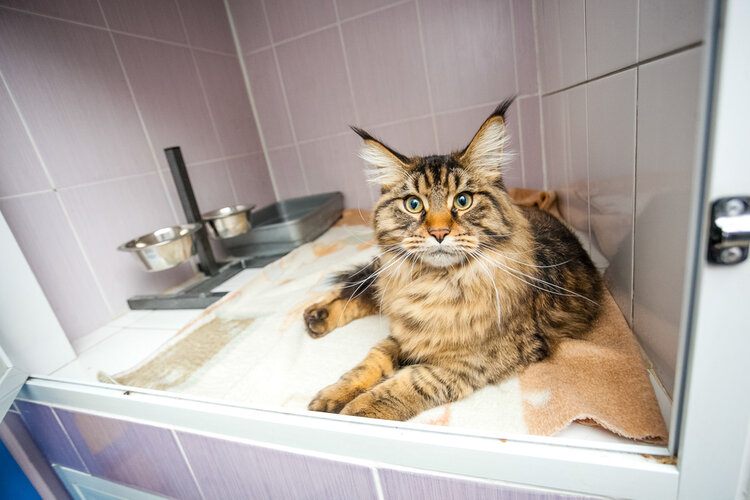
As well as finding out how much the adoption fee is, find out exactly what it covers. For example, some shelters will only adopt out kittens and cats who have been microchipped, vaccinated, and spayed or neutered. Check if the fee also covers initial deworming and de-flea treatments. If your kitten is young, the shelter may give you a voucher to cover the cost of getting them spayed or castrated (also more commonly referred to as neutered) at the appropriate age.
3. What’s the Cat’s Background?
Finding out more about the cat you’re interested in will help you determine if you’ll be a good match, which is incredibly important if you want to maximize the chances of a successful adoption. Some cats are surrendered to a shelter, and the previous owner will provide details of why. Other cats may not have any history other than what the shelter has been able to work out while the cat has been with them.
4. Does the Cat Get Along With Other Animals?

Sadly, some cats get surrendered if they don’t get along with other pets or a new baby. It’s important to let the shelter know your home environment, and they will do their best to match you with a suitable cat. Some cats don’t mind being part of a busy, multi-pet household full of kids, and others prefer living in a quiet home as the only pet.
5. Has the Cat Spent Time With People, or Was It Feral or a Stray?
A cat who used to have a home but has been surrendered to a shelter will be used to spending time with humans and will quickly acclimate to living in a home again. Stray or feral cats may take a little longer to adjust, so it can be useful to know which bracket your new cat falls into.
6. Has the Cat Been Litter-trained?
If a cat has been in a shelter for a while, it’s highly likely that they’re already used to using a litter box. But if you’re adopting a kitten, you must be prepared to train them to use their litter box. The shelter’s staff will be happy to advise you on starting the training process so it’s as straightforward as possible.
7. Does the Cat Have Any Known Health Conditions?
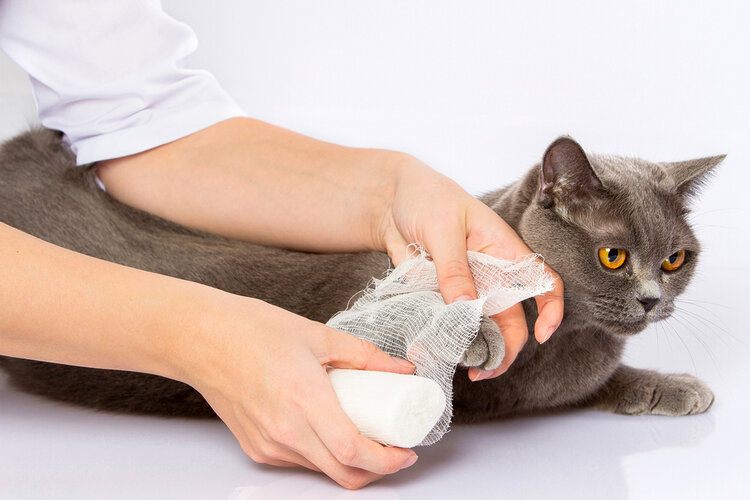
Some cats will have been given a clean bill of health, and others may have ongoing medical issues requiring medication to keep in check. Some cats are surrendered to shelters because their previous owners couldn’t keep up with the cost of their medical treatment, so it’s important to consider whether that’s an ongoing expense you can afford going forward.
8. Has the Cat Been Tested for Feline Leukemia (FeLV) and/or Feline Immunodeficiency Virus (FIV)?
Some shelters won’t test for FeLV and FIV simply because it’s expensive and not in their budget. Others will test each and every cat, so it’s important to find out which bracket your shelter falls into. Cats with FeLV or FIV sometimes need ongoing medication and more routine veterinary care.
9. How Long Has the Cat or Kitten Been at the Shelter?
If a cat has been in the shelter for a long time, you will probably need to allow them plenty of time to acclimate to their new home. The sounds and smells of a home, as well as the size, can feel overwhelming for a cat who has been in a shelter for a long time. With patience and care, every shelter cat can adjust to feeling comfortable in their new home.
10. Can You Spend Time With the Cat Before You Take Them Home?

Some shelters have dedicated areas where you can hang out with a cat and get to know them before you sign up to adopt them. Bear in mind that some cats will seem withdrawn and quiet in a shelter environment but will soon come out of their shells with one-on-one attention and plenty of affection.
11. What Kind of Accommodation Has the Cat Been Living In?
Some shelters will keep their cats in individual pens, and others may be allowed to interact with other cats during the day and then perhaps be kept alone at night. Kittens may be kept in a group, and some shelters will foster cats out in homes. Knowing what sort of accommodation your new cat has been living in can help you work out how long it’ll take them to adapt to your home.
12. Which Cat Do You Recommend for Me?
You might be dreaming of a particular breed of cat, and if your local shelter has one, then it can be tempting to choose that cat as your first pick. But it’s always worth asking the shelter if they would recommend a different cat, and that kitty might suit your lifestyle better! Shelter staff will likely ask you to fill out a questionnaire, and they have plenty of experience matching prospective owners with their new perfect feline partner!
Check out our recent visit to a rescue cat cafe in South Africa, and subscribe to our YouTube channel to follow along on our journeys!
Conclusion
There are several important questions to consider when it comes to adopting a cat. Though it can be tempting to rush the process, it’s important to pace yourself and make sure your prospective pet ticks all the boxes before they come to your home. In this article, we’ve covered several important questions that might be of interest to you and may help make the decision easier for you.
Featured Image Credit: Anika Moritz, Shutterstock
